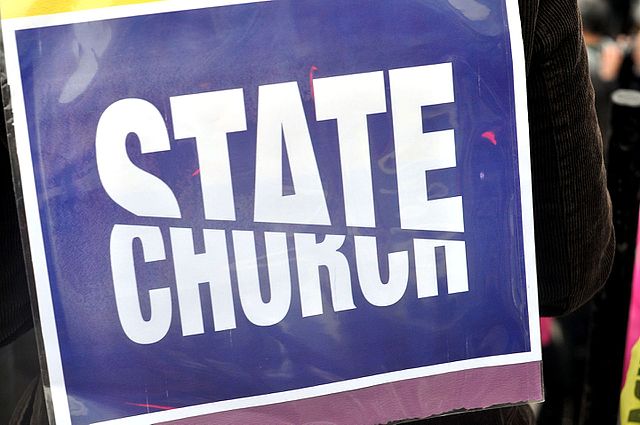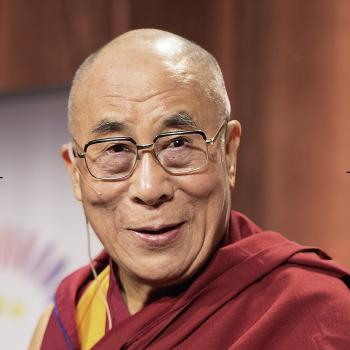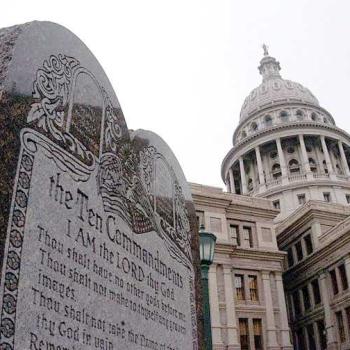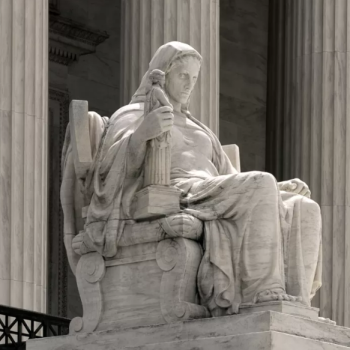Last month, the state of Oklahoma approved the first religious charter school in the nation. Oklahoma is now facing lawsuits as well as pushback from the charter school movement.
St. Isidore of Seville Catholic Virtual School, an online school proposed for rural students, will receive tax money and also provide Catholic instruction. Until very recently, this would have been considered a clear and obvious violation of the Estabishment Clause of the First Amendment to the Constitution. But recent U.S. Supreme Court rulings have emboldened lawmakers in several states who want Christianity taught and promoted in public schools.
Last week the American Civil Liberties Union, Americans United for Separation of Church and State, and the Education Law Center and Freedom From Religion Foundation filed a lawsuit to stop St. Isidore of Seville from going online, or at least from being sponsored by the taxpayers of Oklahoma. The suit was filed on behalf of several plaintiffs, including parents, educators, and clergy. They see the religious charter school as a breach of separation of church and state.
What Is a Charter School?
In the U.S., a charter school is a public primary or secondary school for children that is organized and operated independently from the standard public school system. These independent schools are chartered by state or local government and subsidized by taxes. They are accountable to the state for meeting academic goals, but they have some autonomy to make their own rules and curricula. Parents may choose to send their children there instead of to the standard public school.
As true public schools, charter schools in the U.S. are tuition free, accept all students who apply, and have no religious affiliation. Charter school proponents are not happy with Oklahoma. The New York Times reported that the National Alliance for Public Charter Schools, a leading advocate for charters, “sees the latest effort as antithetical to the spirit of public schools.” Among other things, they are concerned that religious charter schools will get mired in church-state controversies, such as discriminating against LBGTQ students or refusing to hire teachers of different or no religious affiliation.
The History of Religion in Public Schools
Public schools — taxpayer supported, tuition-free schools for all children — began in the New England colonies. By the mid-19th century most states had at least some public schools. These were for white children only in those days. Bible reading and prayer were part of the curricula. But in the 2oth century a number of lawsuits were filed seeking to remove religious observances from public schools.
One of the first of these cases was Everson v. Board of Education (1947). In this case, a taxpayer objected when the state of New Jersey paid for buses to take children to parochial schools. The Supreme Court sided with New Jersey. Justice Hugo Black wrote the majority opinion. “The First Amendment has erected a wall between church and state. That wall must be kept high and impregnable. We could not approve the slightest breach.” However, he continued, “New Jersey has not breached it here.” The majority argued that transportation to and from schools was a benefit to the students and their parents, not to a church.
The Lemon Test
In a later opinion, Lemon v. Kurtzman (1971), the Court proposed what came to be called the “Lemon test” to resolve issues involving tax money and religious schools. The Lemon test has three parts:
- Does the law have a clear secular purpose?
- Would the law have the effect of either advancing or inhibiting religion?
- Would the law create an excessive government entanglement with religion?
As with the New Jersey school buses, the Court has been okay with tax dollars going to religious schools when the money benefits students and couldn’t possibly be used for religious instruction. In the Lemon case, state tax dollars were helping to supplement teacher salaries and pay for textbooks and instructional materials in secular subjects for religious schools. The Supreme Court decided that this setup created excessive entanglement with religion, since the state would have to monitor the schools’ spending closely to be sure it wasn’t being used for religious instruction.
Why This Is Happening Now
The current Supreme Court has effectively killed the Lemon test in recent cases. The recent case of Kennedy v. Bremerton School District (2022), about a high school football coach accused of coercing players to take part in prayers, made the biggest splash. But Carson v. Makin (2022) is more pertinent to the Oklahoma religious charter school. The Carson case challenged a Maine law that barred tax dollars from going to schools that provide religious instruction.
This was an issue in rural Maine, where the population was too sparse to support public secondary schools. But the state was still obligated to provide free education through high school. So in some rural areas the state paid tuition for students to go to private schools, but only if the schools were nonsectarian.
In Carson, a majority of the Supreme Court said that if Maine was subsidizing tuition to private schools, it must not discriminate between religious and not-religious private schools. In other words, the Court has gone from worrying that tax dollars might create an “entanglement” and get used to pay for religious instruction, to saying that the state certainly should pay for religious instruction if it’s giving money to private schools at all.
This Will Not End Well
The six conservative justices on the Supreme Court have made it clear in this and other rulings that they want to weaken, if not smash, the wall of separation between church and state. They call themselves “originalists,” but they manage to not notice the founding fathers who didn’t agree with them. See especially Jefferson’s Wall of Separation Between Church and State and James Madison and Religious Freedom.
The justices appear to be in sympathy with Christian nationalists who want Christianity to be given a privileged status over other religions, something a majority of the framers of the Constitution opposed. But they seem not to have thought out what they will do when the school requesting subsidy is not Christian, but Muslim, or Buddhist. Will Christian nationalists rebel? Will justices come up with some excuse that not-Christian schools are held to a different standard?
For more more articles on religion in U.S. public schools, see When the U.S. Supreme Court Didn’t Ban School Prayer; and The Problem With Bible Readings in U.S. Public Schools.














